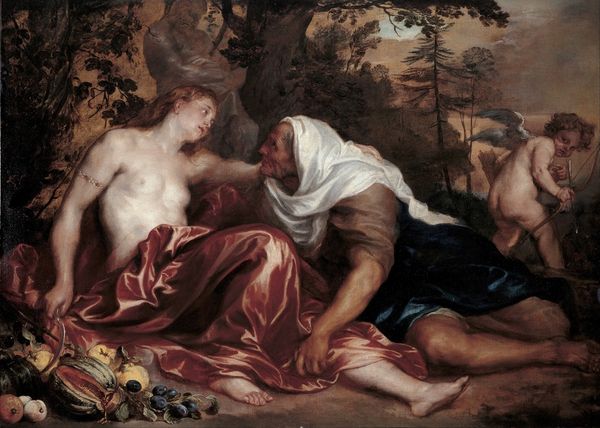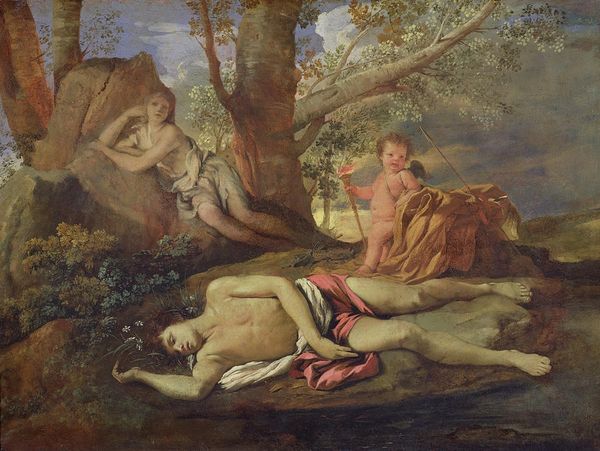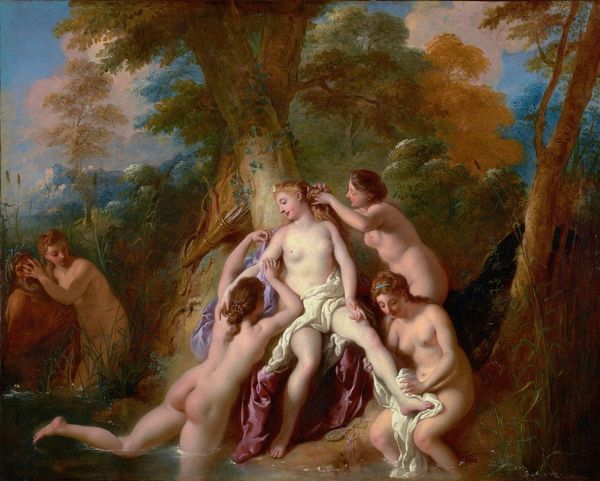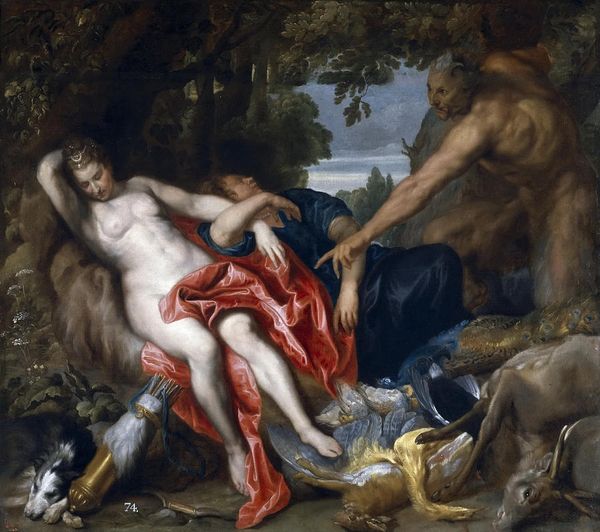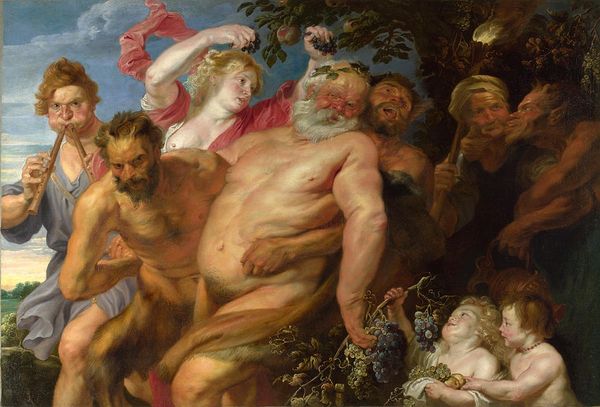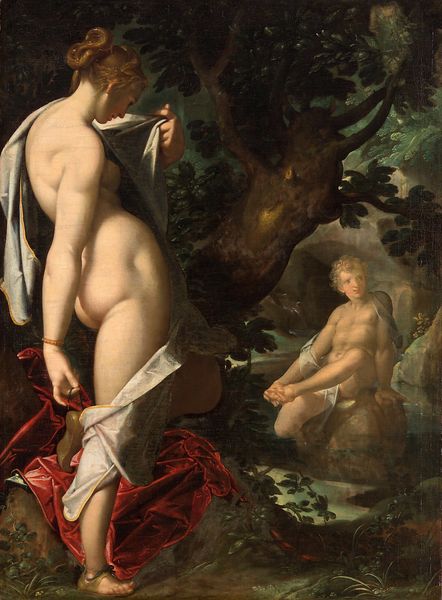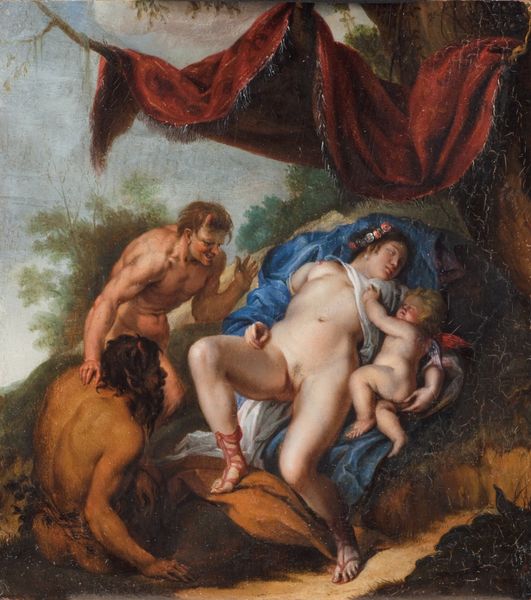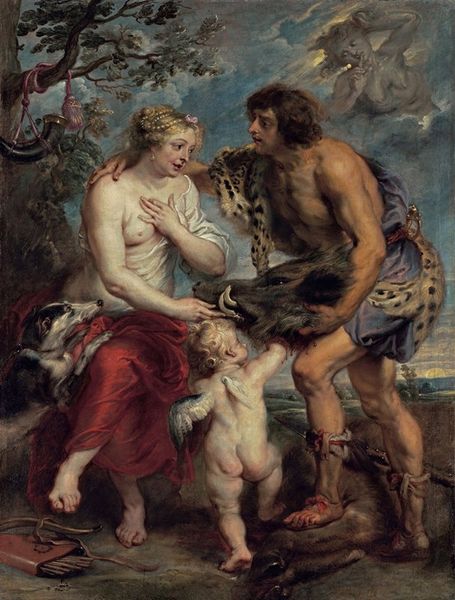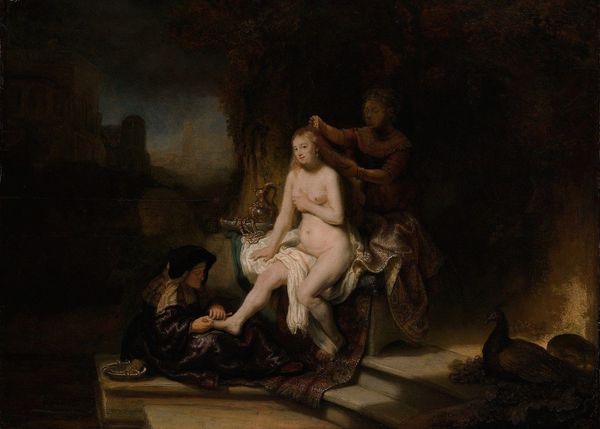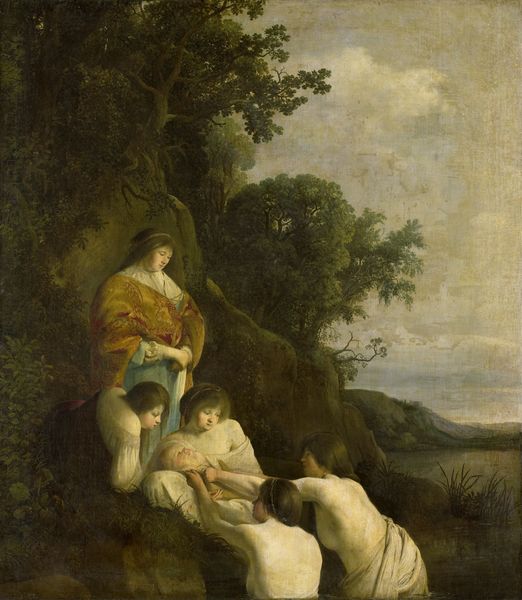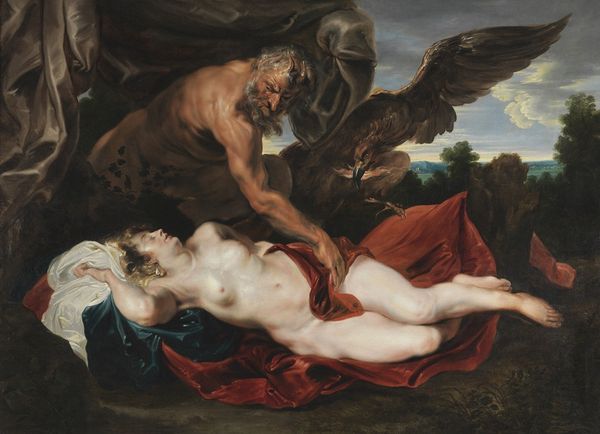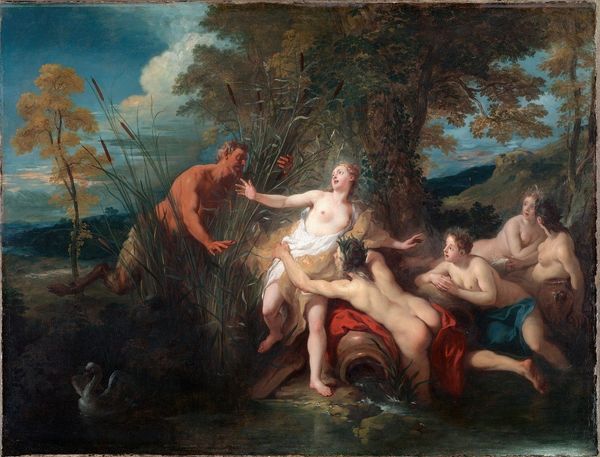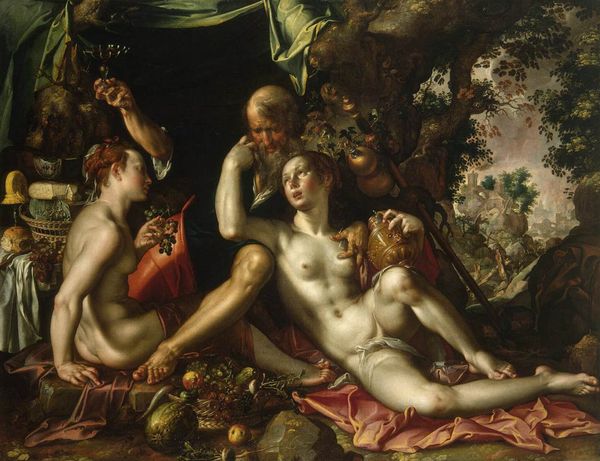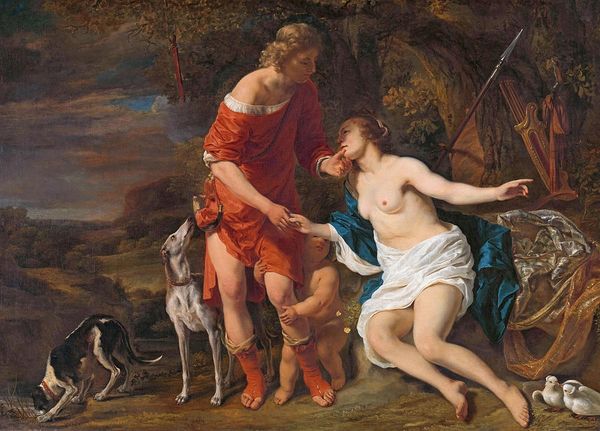
painting, oil-paint
#
baroque
#
painting
#
oil-paint
#
landscape
#
figuration
#
mythology
#
nude
Copyright: Public Domain: Artvee
Peter Paul Rubens painted "Venus Frigida" using oils, creating a scene dominated by the interplay of light and shadow, warm flesh tones against a cooler, darker landscape. This contrast draws our eye to the figures in the foreground, Venus, Cupid, and the satyr, and evokes a sense of voyeurism. Rubens masterfully uses composition to explore themes of desire and vulnerability. The painting's structure is built upon diagonals and curves, from the satyr's gaze to Venus' hunched posture, creating a dynamic tension. Semiotically, the satyr, a symbol of untamed lust, disrupts the idealized beauty of Venus. His presence challenges classical notions of beauty and desire, introducing a sense of unease. Cupid's discomfort further complicates the narrative. Rubens uses the interplay of color and form to destabilize conventional interpretations of beauty and sexuality. This disruption invites us to consider how art engages with the power dynamics inherent in representation.
Comments
No comments
Be the first to comment and join the conversation on the ultimate creative platform.
